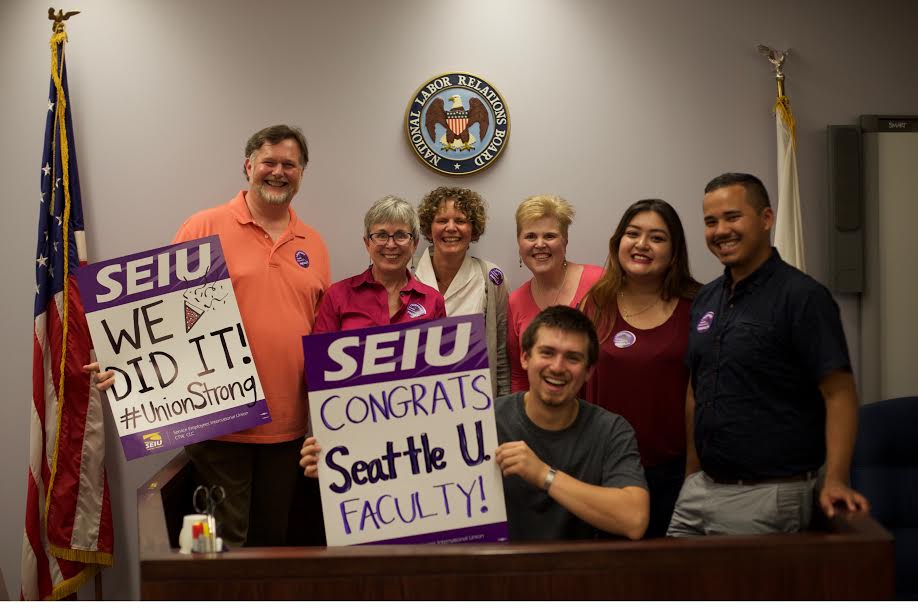Faculty Forward Activists March on Winston-Salem, NC to Protect Voting Rights
 On Monday, July 13, in Winston-Salem, North Carolina, a federal judge will hear the beginning arguments of a historical lawsuit, NC NAACP v. McCrory. Faculty from Georgia, Washington, DC and North Carolina traveled to Winston-Salem to be a part of a historic march on the first day of the trial. Because North Carolina’s new voter laws have a wide-reaching impact across the nation, the fight to protect voting rights in North Carolina has been dubbed this generation’s Selma.
On Monday, July 13, in Winston-Salem, North Carolina, a federal judge will hear the beginning arguments of a historical lawsuit, NC NAACP v. McCrory. Faculty from Georgia, Washington, DC and North Carolina traveled to Winston-Salem to be a part of a historic march on the first day of the trial. Because North Carolina’s new voter laws have a wide-reaching impact across the nation, the fight to protect voting rights in North Carolina has been dubbed this generation’s Selma.
In the morning, UNC-Greensboro faculty member Jim Carmichael joined with faith and civil rights leaders at the federal courthouse in Winston-Salem. He explained to local media that faculty are engaged in the fight to protect voting rights because, “It is important and essential that all citizens have the right to vote. It impacts our educational system, and it impacts our democracy.”
 Before a massive march across Winston-Salem, SEIU Faculty Forward activists held a teach-in with with fast food, home care and childcare workers from North Carolina and across the South on Monday afternoon to explain how Voting Rights are Workers’ Rights.
Before a massive march across Winston-Salem, SEIU Faculty Forward activists held a teach-in with with fast food, home care and childcare workers from North Carolina and across the South on Monday afternoon to explain how Voting Rights are Workers’ Rights.
Forsyth Tech Community College (NC) faculty member Caroline Warren said, “Most of the faculty at Forsyth Tech are part time and I’ve been limited to working 12 hours a week. I have to wait tables every weekend to be able to afford to teach during the week. The past two years, I have made more money serving beer than I have helping people pass an Algebra test. We have plenty of people who have dropped out of our programs because we were not able to offer the math classes or the math tutoring that they need. All because we can’t work more than 12 hours. I’m sure it comes as no surprise to us all that the legislators who don’t want to fund community college programs are the same ones who don’t think it’s important for people to be able to vote.”
 It’s clear that a few powerful people think the dream MLK talked about is close enough to reality that it’s ok to make it harder to vote or not fund public education appropriately — which disproportionately hurts students of color. North Carolina and several other Voting Rights Act states, according to Black Enterprise magazine have withheld over $50 million” in funding for HBCUs.
It’s clear that a few powerful people think the dream MLK talked about is close enough to reality that it’s ok to make it harder to vote or not fund public education appropriately — which disproportionately hurts students of color. North Carolina and several other Voting Rights Act states, according to Black Enterprise magazine have withheld over $50 million” in funding for HBCUs.
Faculty who joined thousands in Winston-Salem on Monday believe we need to do a lot more to create a better North Carolina including making sure everyone has an equal chance to vote, that faculty and every worker has a voice at work and enough money to live a decent life.
It also means that North Carolina fulfills the promise of the state’s constitution that says that higher education should “as far as practicable, be extended to the people of the State free of expense.”

